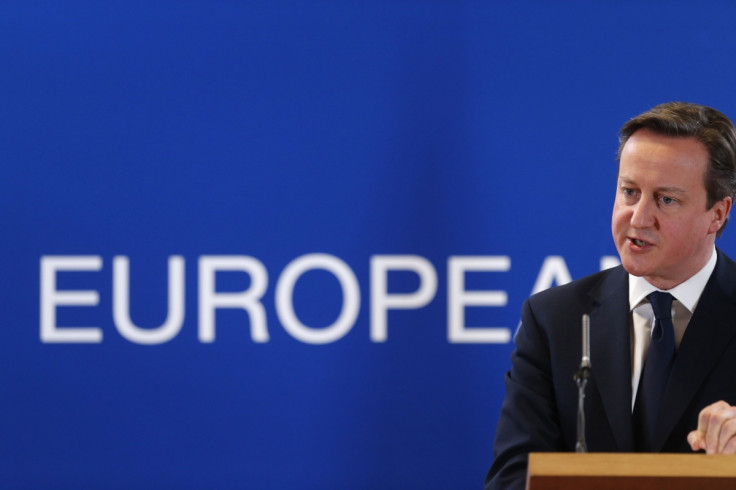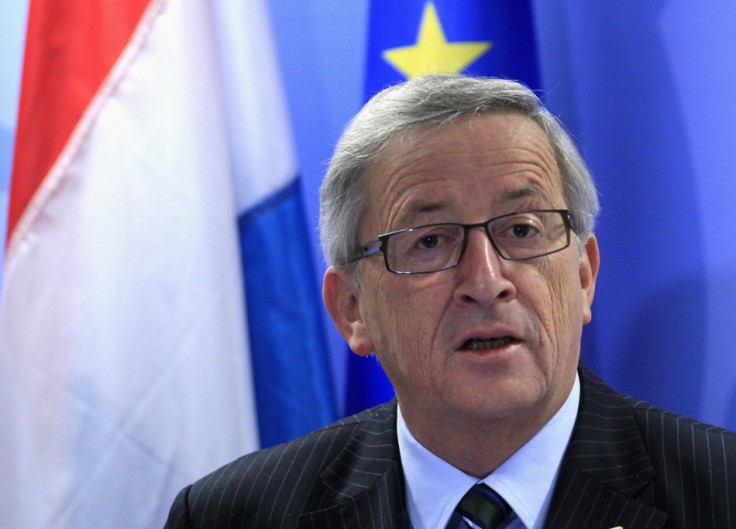David Cameron becomes Hero of Eurosceptics as Brexit Beckons After Juncker Defeat in Brussels

After his inevitable, humiliating defeat over the appointment of Jean-Claude Juncker, David Cameron returns to London amid escalating fears his campaign has pushed the UK closer than ever towards withdrawal from the EU.
The prime minister greeted the 26-2 vote in favour of Juncker by declaring it was a "bad day for Europe" and a serious mistake that would make Britain's exit from the EU more likely.
According Telegraph.co.uk, Mr Juncker's was confirmed as the official nominee at the end of a tense lunch in Brussels during which Mr Cameron told EU leaders they could "live to regret" their decision.
But his critics immediately claimed it was his own tactics that had threatened to drive the UK towards the "out" door by alienating so many other leaders, and that he was now in real danger of painting himself into another corner which could see him forced to recommend withdrawal in the 2017 referendum.
He came close to conceding the point himself when asked in a post-summit press conference if he could envisage ever recommending withdrawal, and answered: "clearly the job has got harder."
But there is little doubt his persistent and highly-vocal campaign aggravated other EU leaders to such an extent there is the real possibility they will not go out of their way to help Cameron when it comes to those tricky negotiations over Britain's relationship with the EU which he has promised before the referendum.

The prime minister will now face MPs in the Commons on Monday determined to make the most of his "principled stand", telling them he did the right thing for the country by challenging the cosy consensus in Brussels.
That attitude will undoubtedly mean he receives a hero's welcome from his predominantly Eurosceptic backbenchers and, if polls are to be believed, the majority of voters.
Both groups appear to love nothing more than seeing a British prime minister sticking it to Europe. Visions of Margaret Thatcher swinging her handbag like a bolas swim in front of their eyes, apparently blind to the fact Thatcher signed up to more "closer union" than any UK premier before or since. She also tended to win votes.
It was only in the dying days of her premiership, when even those around her started believing she had lost the plot, that she became the leader who said "no, no, no". And, of course, it helped bring her down.
But many of those who will be cheering Cameron for standing his ground and refusing to be bullied are exactly the people who see Britain's relationship with the EU through those same spectacles. And their ultimate goal is for the the UK to pull out of Europe.
That is the not-so-secret agenda of the hardcore Eurosceptic Tory MPs who the prime minister has spent much of his time in office attempting to appease, only to see them demanding more after each concession.
Now, thanks to his tactics over Juncker, those MPs are even daring to believe they may yet push the prime minister into a position where he ends up leading the "out" campaign in the 2017 referendum.
That is the last thing he ever contemplated but, unless the rest of the EU now back some very specific and significant Cameron-led reforms, he may find he has backed himself into a corner similar to the one he trapped himself in over Juncker.
The next step for the Eurosceptics will be to call on him to set down clear, detailed and radical reforms in areas like repatriation of powers, migration controls, working practices and so on.
But if he does that, he will once again have been forced into showing his hand early in negotiations and put himself in a position where any trimming will be chalked up as retreat. And, in any case, he may now have trouble forging alliances around his programme.
His task, assuming he wants to keep Britain inside Europe, will be to win significant reforms that will satisfy his Eurosceptics and voters enough to persuade them to stay in the EU.
That task, as he himself admits, has just got significantly harder.
© Copyright IBTimes 2025. All rights reserved.






















